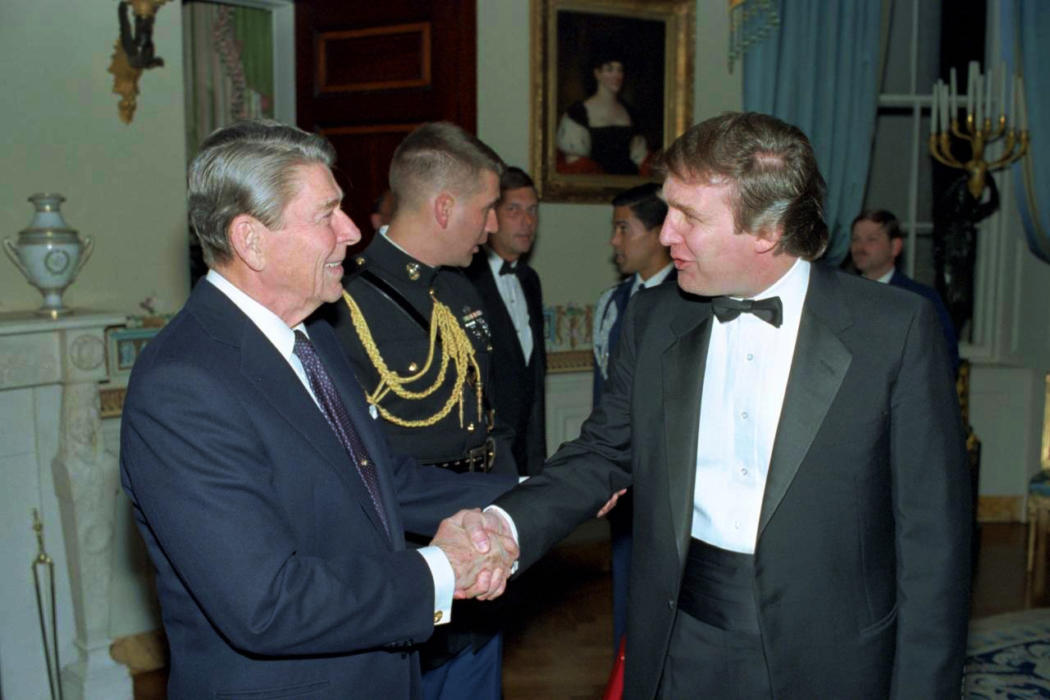In the aftermath of World War II, there was an attempt via organizations like the UN and NATO to establish partnerships that could build up diplomacy as an alternative to war. But that soon gave way to the struggle for dominance between the Soviet Union and the United States in the decades-long Cold War, with smaller proxy battles all over the globe.
With the break-up of the Soviet Union, neocons offered the idea of a Pax Americana—where the economic and military power of the United States would be so overwhelming that none would dare challenge us. But 9/11 changed all of that and the Bush/Cheney military debacle in Iraq demonstrated that even the world’s sole super power had feet of clay. That led to discussions like this:
Whoever occupies the Oval Office after the November 2004 election will have to try to recoup the power that the United States lost during its rendezvous with neo-conservative fantasy. That can only be done – if at all – through an attempt to reconstitute a multilateral consensus on globalization in which the United States is primus inter pares, guaranteeing the security of world capitalism militarily, but not using its military power to impose its policies on its allies and independent limited collaborators (China and Russia) without genuine negotiation and compromise…The Iraq adventure has demonstrated that unilateralism alienates allies and collaborators, resulting in the loss of American credibility and clout. Multilateralism remains the path that leads to the maximization of American power in the world.
It took another four years for this country to elect a president who was committed to the use of multilateralism as a way to resolve global conflicts. Obama was not always successful in those efforts, but he worked with our partners on everything from counterterrorism to climate change to preventing Iran from developing nuclear weapons. As Obama said during his speech in Brussels, he was harkening back to the post-World War II attempts to solve problems via diplomacy, and encourage the ideals of democracy around the globe.
…in the aftermath of World War II, America joined with Europe to reject the darker forces of the past and build a new architecture of peace. Workers and engineers gave life to the Marshall Plan. Sentinels stood vigilant in a NATO Alliance that would become the strongest the world has ever known. And across the Atlantic, we embraced a shared vision of Europe — a vision based on representative democracy, individual rights, and a belief that nations can meet the interests of their citizens through trade and open markets; a social safety net and respect for those of different faiths and backgrounds.
That is precisely the legacy that Donald Trump is attempting to destroy. You already know the specifics, so I don’t think it is necessary to list them. But for Donald Trump especially, and Republican hawks as well, the idea of multilateralism (or partnership) is a sign of weakness, not strength. The alternative is to beat our chests as the world’s great military power and assume the rest of the world will cower in fear. But that’s now how things work. Instead, what Trump is doing weakens American leadership on global affairs—just as Bush/Cheney did by invading Iraq.
Gardiner Harris provides an example of that based on the reception Sec. of State Tillerson received in Brussels this week.
For decades, America’s chief diplomat has been greeted in Europe’s heart with broad smiles and open arms.
That tradition appeared to have been suspended on Tuesday.
Secretary of State Rex W. Tillerson’s reception in Brussels was distinctly chilly, as disappointment among European diplomats in President Trump’s nationalistic tone and insulting messages on Twitter built into quiet fury on the eve of an expected announcement that the United States would recognize Jerusalem as the capital of Israel. Such a move could infuriate the Palestinians, who want East Jerusalem to be their capital in a future Palestinian state.
In a brief public appearance beside Mr. Tillerson, Federica Mogherini, the European Union’s top diplomat, gave the kind of stone-cold statement of facts that she would normally provide standing beside her Russian counterpart, not the American one…
Ms. Mogherini’s remarks came just hours after Foreign Minister Sigmar Gabriel of Germany declared at a foreign policy conference in Berlin that relations with the United States “will never be the same” and said that the Trump administration increasingly viewed Europe as a “competitor or economic rival” rather than an ally.
That is why, when Obama was in India, he said that there had been a “pause in American leadership.” The question becomes whether or not another country fills the void. It is clear that Vladimir Putin has his eye on that prize, as does China. The European Union is stepping up to the plate to maintain the Iran nuclear agreement and Justin Trudeau has become the champion of liberal values in negotiations on trade with the other countries involved in the Trans-Pacific Partnership.
There is no doubt that America’s economic and military strength still hold great sway around the globe. But the kind of hegemony we’ve assumed in the past is being put to the test, primarily via the foreign policy of Republican presidents. That opens up possibilities, some of which could be dangerous—including the potential for bad actors to exploit chaos.



